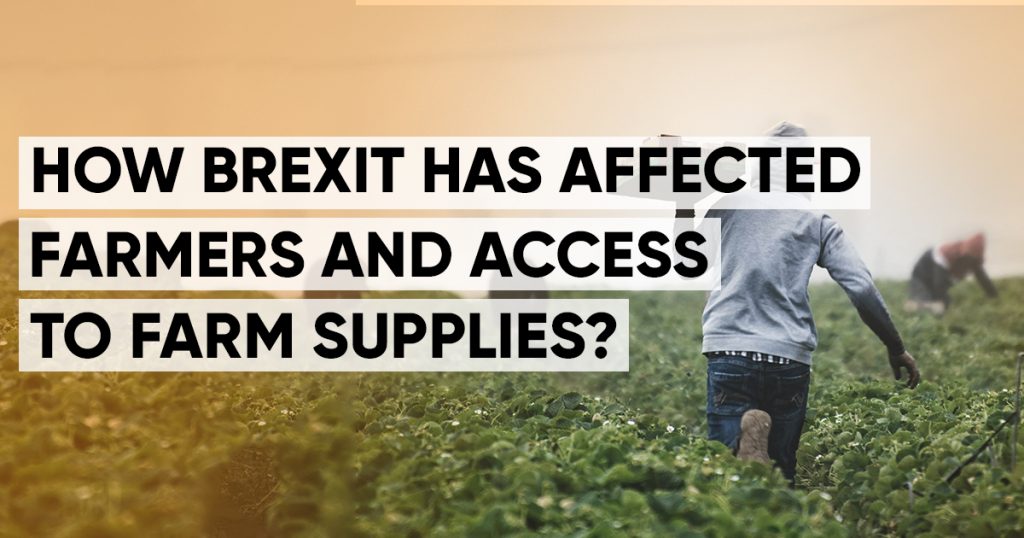The agreement of a trade deal between the UK and the EU – Just a few short months ago at the time of writing – was cause for a great deal of relief. The announcement that UK farmers could go right on exporting their produce to lucrative EU markets without quotas or tariffs sounded a great deal like ‘business as usual’ for many farmers.
However, selling your produce is only half the game, and Brexit may be playing more of a role than many of us had hoped when it comes to accessing the farm supplies the UK’s farmers need to make that produce in the first place.
In some cases, farm supplies were suddenly unavailable from normal distributors.
The problem is not typically one of tariffs or quotas, but rather one of bureaucracy.
In one of the more extreme examples, Northern Ireland sheep farmers saw animal feed shipments stopped or delayed in January because no one was quite sure how to apply other aspects of the Brexit rules. The confusion in this case was over whether livestock feed containing processed animal proteins required export health certification in the same way that meat products destined for human consumption do. The irony is that it was UK suppliers that were having trouble getting farm supplies into Northern Ireland.
What other issues are farmers facing?
While the idea of free trade is certainly enshrined in the agreement, farmers are discovering that ‘free’ and ‘frictionless’ are very different concepts. Experts in the transport industry say that most of the friction is due to confusion, as in the sheep feed issues noted above. It isn’t clear – not to the farmers, the transporters or even to the officials tasked with enforcing the new trade agreements – exactly what the standards are or how they should be enforced.
Another wrinkle is the sheer number of dispute settlement processes on the table at the moment. With so many options and so many of them untested, there exists the potential to ‘shop around’ for the most beneficial dispute process. The problem there being that both sides would haver their preferred process and forum, and yet another process, possibly an international court, would have to decide the matter. If that sounds like ‘endless litigation’ to you, you might not be far wrong.
The third source of trade friction seems to be a hesitancy to make decisive moves on either side of the EU/UK divide. On many issues, the two political entities can now follow their own internal processes and arrive at fundamentally different standards. Some farmers would welcome this, but others fear that a too dramatic divergence of standards would cause shipments of farm supplies from the EU to dry up, at least temporarily.
What does the government have to say about the availability of farm supplies?
Very little, beyond the warning that farmers could face ‘significant additional disruption’ to their supply chains before all the entities involved sort themselves out.
If you have questions about how you can ensure that you’ll keep getting the farm supplies that you need, call us at 01935 310298. We’d be happy to discuss you needs and how we can meet them reliably.

